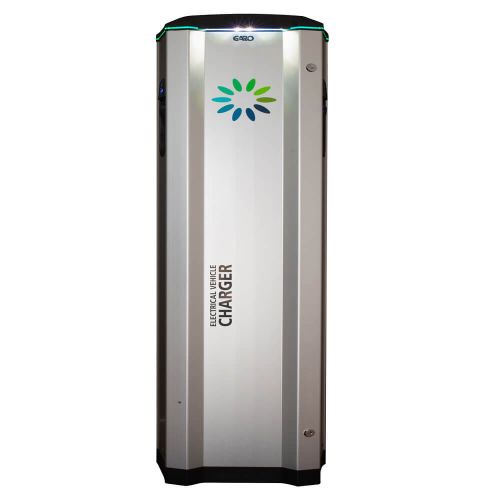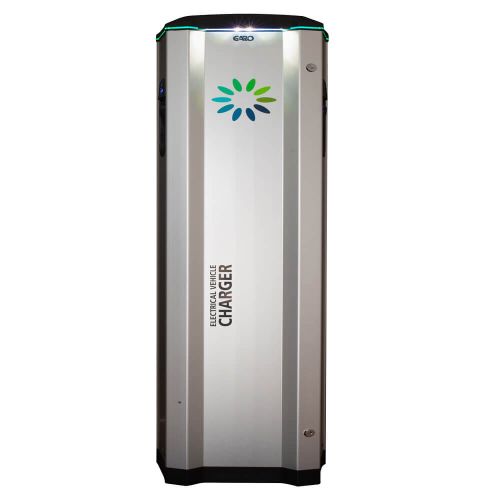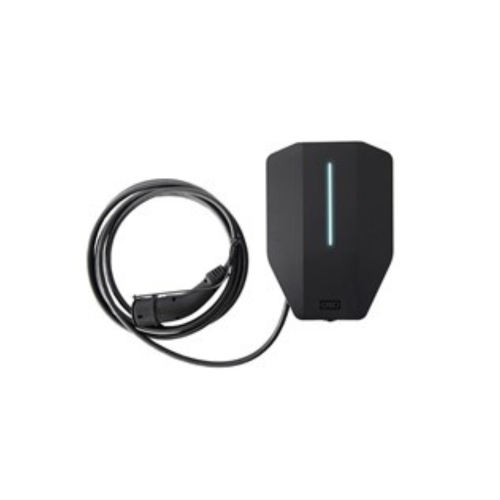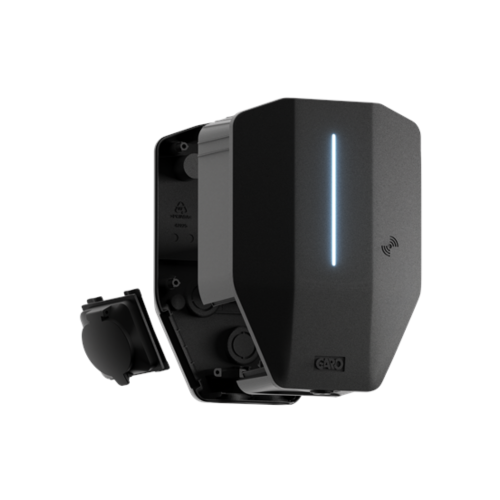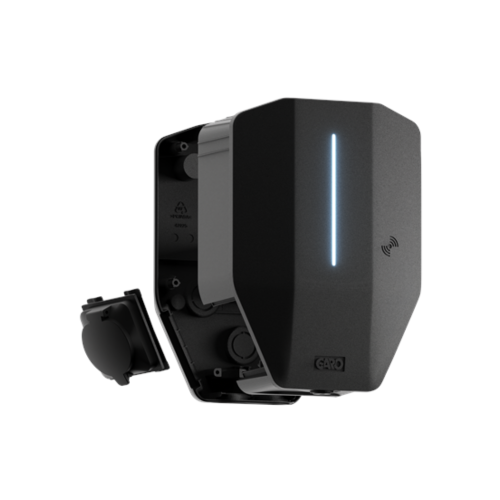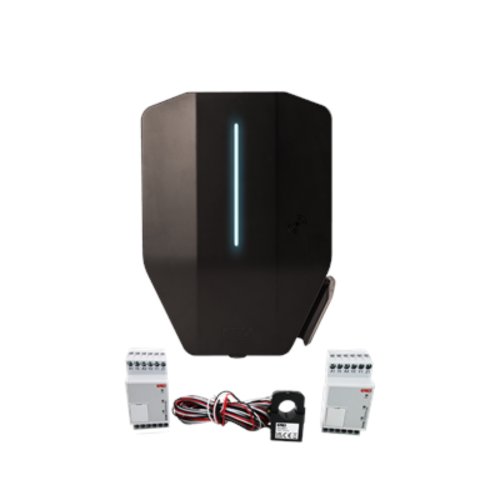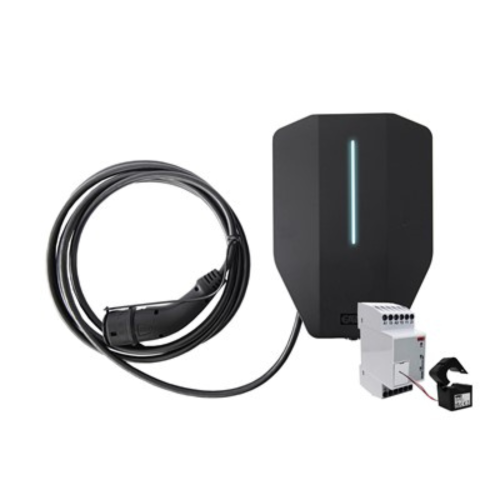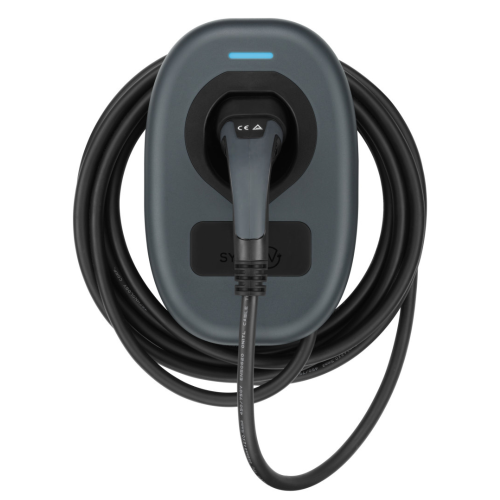Electrical Vehicle Charging
Our range of Electrical Vehicle (EV) charging is smart, easy to use, and designed for any electrical vehicle.
GARO is the region's market-leading manufacturer and supplier of charging infrastructure for electric vehicles. Their comprehensive range offers charging solutions for businesses, organizations, homes, hotels, shopping centers, car parking spaces, and service stations.
Garo has completed installations across several high-profile organizations and facilities including Facebook, Musgraves, Universities, County Council Offices, Shopping Centres, and many more. In Sweden, Garo's EV Chargers have been placed in Volvo Car's R&D facility, Charge and Drive Highways Norway, all Swedavia Airport Car Parks, Sweden's Green Highway, McDonald's, and multiple energy utility companies & service stations.
Each of our account managers has been trained by Garo and is up to date with all EV regulations. Feel free to get in touch today and discuss your EV charging station requirements at 028 (048) 867 51515. Read in more detail about GARO's EV charging at our blog here.
Garo’s extensive experience, expertise, and innovation allow us to offer a uniquely wide range of charging stations. GARO's Product Development team is continually developing and enhancing the charging range to meet the future requirements of our customers.
With the world constantly trying to adapt toward electric mobility, many places such as the UK and Ireland are in the middle of establishing suitable charging infrastructure networks so that EV chargers can be found wherever an EV user may need them.
Whether it is an outdoor commercial EV charger you are looking for or a standard domestic EV charger, Meteor has a wide range of electric vehicle chargers to choose from by the leading manufacturer and brand, Garo Electrical.
-
EV Charger Locations
Garo EV chargers can be placed in different locations and applications according to what the user finds more convenient. Many find domestic EV charger installations far more practical and easier than having to find public EV charger stations – drivers' anxiety is prone to come up if the user resides in an area with no EV charging station for miles.
-
Electrical Vehicle Chargers at Home
Most EV owners find it easier to leave their EVs charging during the night time so they are fully charged by the time morning arrives and they have to travel. In addition, having Garo domestic EV chargers installed at home allows users to have a cost-effective charging option; they won’t have to pay any more the amount than the electricity they consume against the household’s electricity price.
-
Electrical Vehicle Chargers at the Workplace
Using public Garo EV chargers at the workplace is a popular option among EV users because once the day ends, they can find their EVs fully charged for the drive home. Due to the convenience it brings, more and more workplaces are starting to install EV charging stations to integrate the sustainability initiative, as well as employee engagement strategies in an attempt to tend to the needs of EV driving visitors, partners, and employees.
-
Electrical Vehicle Chargers at Gas Stations
Gas and fuel retailers and service stations are starting to provide a fast EV charger option (level 3 or DC EV chargers). With fast public EV chargers available at gas stations and other such locations, it makes it much easier and quicker to charge an EV’s battery in minutes and continue on your journey.
-
Electrical Vehicle Chargers at Retail Locations or Hotels
Commercial centers of cities and towns are one of the most in-demand areas for EV charger installations because EV users prefer to leave their vehicles charging as they go about their errands. This is allowing more retail locations to discover the need for EV chargers and the urge to meet the demand and acquire new customers becomes important.
-
Public Electrical Vehicle Chargers
Garo public EV charger options such as their LS4 units 2x22kw Outlets Metered & Ethernet and LS4 LAN Ground Mounted EV charger are often installed in public EV charging locations. Not only does this sustain growth in the EV sector but public EV chargers are built to be both robust and accessible which makes them the perfect choice for such applications.
Public EV chargers available at stations allow the general public to charge their EVs and are accessible without any kind of restrictions on which users can utilize the EV charger station. Public EV charger station utilization not only helps from a sustainability perspective but also provides a chance for subsequent revenue to snowball into expanded opportunities such as larger networks, more powerful EV chargers, and more.
Types of EV Charger Methods
There are many factors to take into consideration when it comes to EV chargers, and while deciding where you charge and how fast you charge, it is necessary to be aware of the various categories or types of EV charging. The three main categories of charging using EV chargers are showcased below.
- Trickle Charge – Despite being one of the most common and convenient methods, using an EV charger at home is the slowest method of charging your electrical vehicle. Moreso if you are using a standard (three-pong) 220V plug, which is why it is only recommended to do so in urgent cases, with caution and consultation with professional electricians and/or electricity providers. Trickle charging also does not require the installation of additional charging equipment and can deliver 13 to 16km of range per hour of charging. The charging speed is approximately 65km of range in 5 hours overnight or 200km in 14 hours. The reason why it is recommended to use this method of charging only for urgent situations is that the use of household electricity may cause problems when it comes to electricity bills and electrical loads. In addition, getting an ICCB (In Cable Control Box) is recommended to ensure maximum reliability.
- AC Charge – Having a Garo Domestic Wallbox EV charger installed will allow you to charge your electrical vehicle three to four times faster using AC household charging solutions. AC charging provides charging through a 230V outlet which allows you to charge a 40kWh battery EV within 6 hours. AC charging requires the installation of a good quality wall box EV charger and it must be installed by a professional and trained electrician to avoid any dangerous circumstances and damage to the device. It is ideal to have a wall box EV charger installed in a garage or driveway area where it can be positioned. A good idea is to look up any financial incentives in your local area or country to minimize expenditure and installation costs.
- DC Charge – DC electrical vehicle chargers are the fastest way to charge your EV in record time. These EV chargers are often found at public DC fast-charging stations providing power from 50kW and above. Through this EV charger method, it is possible to top up your EV battery from 20% to 80% in approximately 40 minutes. Moreover, it is beneficial to look up if there are ultra-fast EV charger stations that provide more than 150kW already set up in your area. However, it is better to limit the use of DC charging in order to help prolong the high-voltage battery life of your devices.
-
FAQ's
- What is a Domestic Wall Charger?
- How does EV chargers work?
- Can I monitor the Domestic Wall Charger?
- What is the purpose of the RFID tags?
- What is the purpose of the EV RFID cards?
- What are GLB Wall Chargers?
- Single phase 7.4 kW OR Three phase 22 kW EV Charger?
- Is it necessary to use dynamic load management? Are there any heat pumps, electric showers, or other appliances that can demand a lot of power?
- What size supply is supplying the home if DLM is required: 63A, 80A, three phase or single phase?
- Is a type 2 or type 1 lead required for vehicles?
- Socket GLBDC-T222WO or fixed cable GLBDC-T222FC?
- Is it necessary for the vehicle owner to have access to the charger's interface through a handheld device?
- Wall mounted or free standing?
- Is Billing required?


